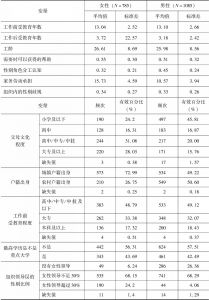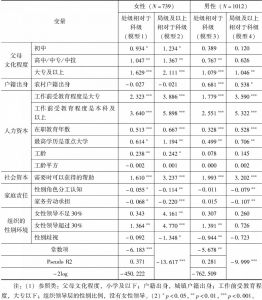章节
我国政治精英晋升的性别比较研究
摘要
本文从性别视角出发,认为政治精英的地位获得是具有性别差异的,这种差异的变化反映了中国社会结构与身份政治的变迁。本文使用2010年从全国获得的1870位科级及以上政治精英的资料,以性别比较的方法分析了影响两性晋升的因素。研究发现,影响两性政治精英晋升的共性方面是人力资本和社会资本的正向作用;差异性方面则是性别因素,女性政治精英地位的获得会更多地受惠于父母的社会经济地位、自身的性别平等观和平衡工作与家庭角色的能力,男性政治精英向更高层次晋升时亦受到性别观念和平衡工作与家庭角色能力的作用,但这些因素的影响力度弱于女性。我国在向上流动上依然是一个相对封闭的社会,性别身份依然作用于人们的向上流动,男性通过提升人力资本和社会资本便能进入政治精英的成长之路;而女性既要有高质量的人力资本和社会资本,还要有赖于父母的社会经济地位、个人的性别平等观和平衡工作与家庭角色的能力。
检索正文关键字
章节目录
- 一 研究问题的提出
-
二 文献回顾和理论假设
- 1.先赋因素与晋升
- 2.自致因素或人力资本因素与晋升
- 3.社会资本与晋升
- 4.工作和家庭角色的平衡与晋升
- 5.组织的性别环境与晋升
-
三 数据与研究方法
- 1.数据来源
- 2.变量说明
- 3.样本基本情况和模型
-
四 研究发现和理论讨论
- 1.政治精英晋升之影响因素的性别比较
- 2.两性政治精英晋升之路的比较研究
相关文献
查看更多>>>



